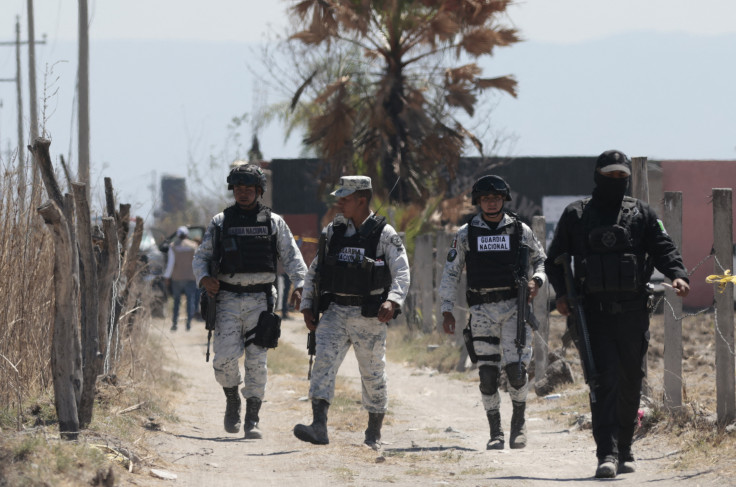
The Drug Enforcement Administration (DEA) is accusing several Mexican drug cartels of infiltrating major U.S. cities after finding a giant mural of Nemesio Oseguera Cervantes, alias "El Mencho," the leader of Mexico's Jalisco cartel who is also one of the principal traffickers of fentanyl to the U.S.
DEA agents initially found the floor-to-ceiling mural a few weeks ago when they raided a warehouse in Los Angeles. The visuals, which featured El Mencho wearing a bulletproof vest and the insignia of the Jalisco New Generation Cartel (CJNG), stunned the officers, who concluded that it was not a coincidence that they found it in a warehouse they knew they'd see drugs, but rather it was a clear message to them.
"A shrine," said Matthew Allen, special agent in charge of the DEA's Los Angeles Field Division. "Not hidden in the jungle or some remote compound, but right in the heart of America's second largest city. The message was clear: we are here, we are among you."
Agents made their worries public on Tuesday during a Senate Judiciary Committee meeting, where they detailed under sworn testimony how cartel members and other violent criminals easily hid in plain sight in some of America's biggest cities, according to Border Report.
One of them was Cristian Gutierrez Ochoa, a son-in-law of El Mencho who held Mexican marines as hostages to secure the release of the cartel boss' wife. The scheme failed and put Gutierrez in the crosshairs of Mexico's military, which led to him faking his death and sneaking into the U.S. The DEA caught up with him last November in Riverside, California.
"It quickly came to our attention that he was living in a gated community just down the street from the chief of police," Allen said. "He was living a life of luxury— with luxury watches, things of that nature, living his life here in the United States."
Allen also described several instances of cartel members directly "shadowing" DEA agents in both Mexico and the U.S. North of the border, he explained, the surveillance typically happens prior to arrests being made and DEA agents often have to call for local police departments to assist them with a show of force.
© 2025 Latin Times. All rights reserved. Do not reproduce without permission.




